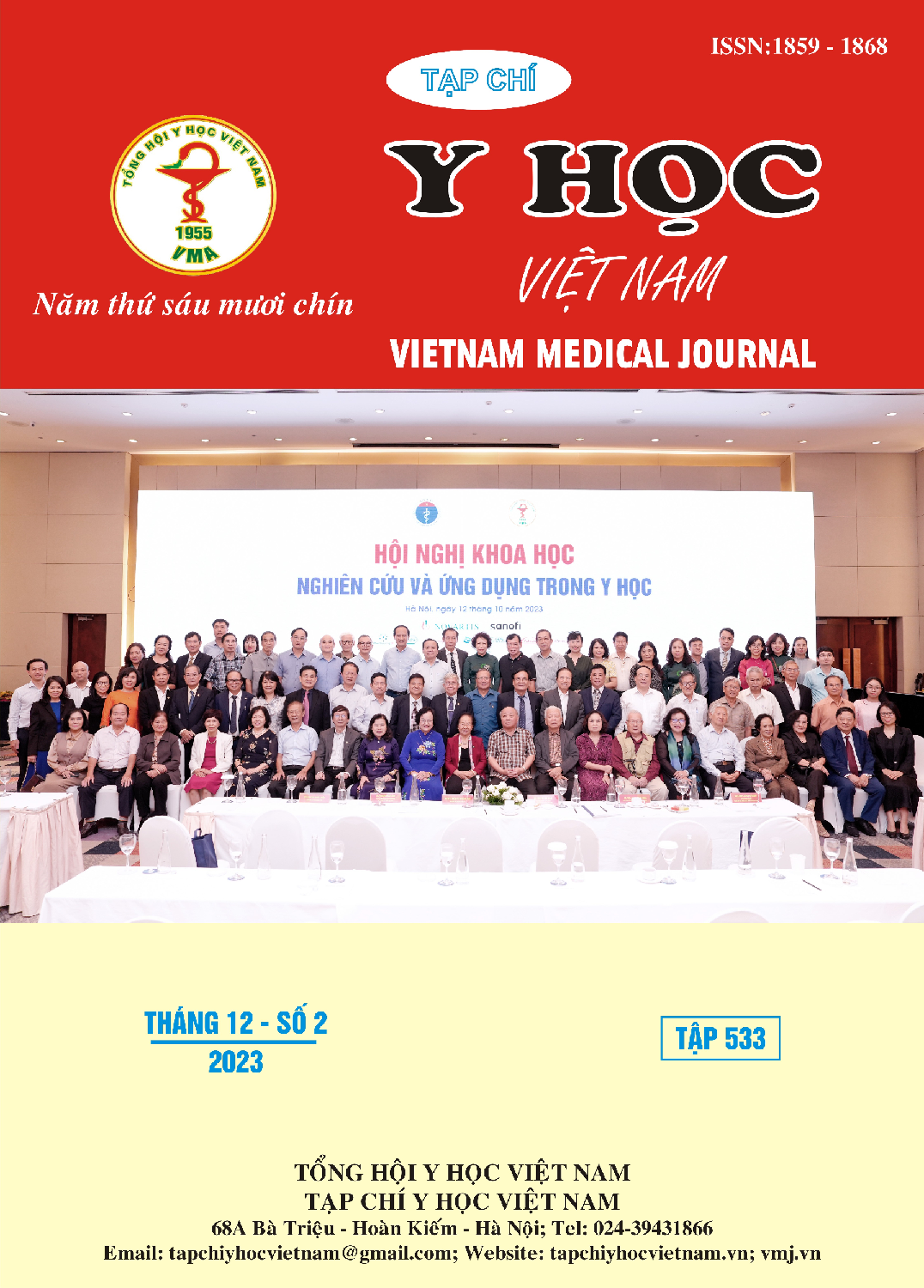TREATMENT ADHERENCE IN READMITTED HYPERTENSIVE PATIENTS AT MILITARY HOSPITAL 354 IN 2023 AND RELATED FACTORS
Main Article Content
Abstract
Objectives: To assess the adherence to hypertension treatment among patients and identify influencing factors. Methodology: A cross-sectional descriptive study was conducted on 380 hypertensive patients readmitted from April 2023 to September 2023 at Military Hospital 354. The Morisky-8 scale was used to evaluate treatment adherence among the study subjects. Results: The levels of treatment adherence were low, moderate, and high, accounting for 16.8%, 21.4%, and 61.8%, respectively. Within the last two weeks, 41.6% of individuals forgot to take their medication, and 35.5% forgot to bring their medication when traveling. Statistically significant factors associated with decreased treatment adherence included lower educational attainment (OR=1.4, p<0.05), economic status, divorced/single family status (OR=2.6, p<0.001), lack of health insurance (OR=3.1, p<0.05), and failure to achieve preventive and therapeutic practices for hypertension (OR=52.7, p<0.05). Conclusions: The majority of hypertensive patients demonstrated moderate treatment adherence (61.8%), with a high rate of medication forgetting in the past two weeks (41.6%). The primary reason for irregular medication intake was forgetting to bring medication when traveling (35.5%). Factors associated with better treatment adherence included higher educational attainment, relatively good economic status, living with a spouse or family member, having health insurance, and achieving preventive and therapeutic practices for hypertension.
Article Details
References
2. Trần Thị Mỹ Hạnh (2017), Đánh giá kết quả can thiệp nâng cao thực hành theo dõi huyết áp và tuân thủ điều trị ở người tăng huyết áp trên 50 tuổi tại huyện Tiền Hải, tỉnh Thái Bình, Luận án tiến sỹ y tế công cộng, Trường đại học Y tế công cộng.
3. Ngô Văn Kiệp, Nguyễn Quốc Dương và Lâm Vĩnh Niên (2017), "Thực trạng tuân thủ điều trị tăng huyết áp ở người cao tuổi tại huyện Tiểu Cần, tỉnh Trà Vinh", Tạp chí nghiên cứu Y học. 21(5), tr. 87-92.
4. Nguyễn Tấn Phát và Phạm Thị Quỳnh Yên (2022), "Khảo sát sự tuân thủ điều trị và các yếu tố ảnh hưởng trên bệnh nhân tăng huyết áp điều trị ngoại trú tại Bệnh viện 199 Bộ Công an", Tạp chí Khoa học và Công nghệ Đại học Duy Tân. 2(57), tr. 96-104.
5. Nguyễn Như Phương (2022), Tuân thủ điều trị đái tháo đường type 2 và một số yếu tố liên quan ở người bệnh ngoại trú tại Trạm Y tế phường 11, quận Gò Vấp, thành phố Hồ Chí Minh năm 2022, Luận văn thạc sĩ y tế công cộng, Trường Đại học Y tế công cộng.
6. Bộ Y tế (2017), Thực trạng đáng báo động về bệnh Tăng huyết áp tại Việt Nam, Cổng thông tin Bộ Y tế, truy cập ngày 24/9/2023, tại trang https://moh.gov.vn/tin-lien-quan/-/asset_publisher/vjYyM7O9aWnX/content/thuc-trang-ang-bao-ong-ve-benh-tang-huyet-ap-tai-viet-nam?inheritRedirect=false.
7. Đoàn Thị Phương Thảo, Nguyễn Thị Minh Lý và Mai Minh Thường (2023), "Đánh giá thực trạng tuân thủ điều trị và một số yếu tố ảnh hưởng ở người bệnh tăng huyết áp khám ngoại trú tại bệnh viện đại học y Hà Nội", Tạp chí Y học Việt Nam. 522(2). tr. 1-7.
8. Nông Hồng Thiên (2020), Phân tích tình hình sử dụng thuốc tăng huyết áp và tuân thủ điều trị của bệnh nhân điều trị ngoại trú tại Trung tâm y tế huyện Cao Lộc năm 2020, Luận văn Dược sỹ chuyên khoa cấp I, Trường Đại học dược Hà Nội.


